The legislation of the Russian Federation provides for the transfer of ownership from one person to another. In our article we will talk in detail about the legislative norms that govern the transfer of ownership.
About when and in what cases this happens, about the necessary documents for this and about the transition process itself, as well as about the features of the process that you should pay attention to first.
Legislation
The most important legal document that regulates the process of transfer of property rights is the Land Code of the Russian Federation. The fifth chapter is devoted to the ownership of land plots. 
Article 25 regulates the process of emergence of ownership rights to plots of land. Article 26 describes the necessary list of documents that secures ownership in the legal field.
Article 27 is devoted to restrictions on the circulation of certain land plots, and Article 35 is devoted to the transfer of ownership rights to a plot of land from one person to another.
Article 37 describes the features of purchase and sale transactions with land plots in Russia.
If you want to find out how to solve your particular problem in 2023, please contact us through the online consultant form or call :
- Moscow: +7 (499) 110-86-72.
- St. Petersburg: +7 (812) 245-61-57.
If we analyze the legislation of the Russian Federation, it becomes clear that a wide variety of legal facts are used to formalize ownership rights to a plot of land.
 Article 218 describes all the arguments on the basis of which the right of ownership arises. Article 219 is devoted to the emergence of such a right to newly created real estate. Article 223 is devoted to the registration of ownership rights to property under a previously concluded agreement, for example, sale or exchange.
Article 218 describes all the arguments on the basis of which the right of ownership arises. Article 219 is devoted to the emergence of such a right to newly created real estate. Article 223 is devoted to the registration of ownership rights to property under a previously concluded agreement, for example, sale or exchange.
The issue of transfer of ownership rights is also regulated by the federal law of July 21, 1997 “On state registration of rights to real estate and transactions with it.” It describes the main nuances and requirements associated with the registration of ownership rights to certain real estate, including land plots.
In what cases does it happen?
- The transfer of ownership rights can occur in a wide variety of cases that are permitted by Russian legislation.
- We will focus on the most common of them:
- If you want to find out how to solve your particular problem, please contact us through the online consultant form or call :
- Moscow: +7 (499) 110-86-72.
- St. Petersburg: +7 (812) 245-61-57.
The emergence of property rights due to the decision of the authorities
Thus, ownership of land can be transferred from state or municipal authorities to a private person on the basis of a previously signed regulatory act. Land can be transferred to both individuals and legal entities into private ownership, based on a decision of local or federal authorities.
In certain cases, which are provided for by the Land Code, the transfer of ownership rights is possible on a free basis. For example, non-profit gardening or vegetable gardening organizations, for maintaining the relevant farm.

Such land plots are provided to citizens and organizations for carrying out certain work provided for by the categories of land plots. For example, on a plot that is intended for farming, it is necessary to engage in farming, and not in the construction of some kind of structure for other purposes.
In this case, the transfer of ownership of land occurs on the basis of a decision of authorized local or federal authorities, who have the corresponding right to provide plots of land for certain purposes, both to citizens and organizations.
Adopted court decision
Thus, the transfer of ownership can occur on the basis of a decision of a Russian court. For example, a decision to recognize the right of a specific citizen to a specific piece of land. This possibility is provided for both by the Civil Code (Article 8) and the Land Code (Article 59).
In this case, the basis is the court decision. Later, on the basis of a court decision, state registration of property rights occurs.
Execution of a certain transaction and signing of an agreement
The most common way to transfer ownership rights is to conclude some kind of transaction. This may be a contract of sale or gift, or a transaction of exchange or lifelong maintenance with a dependent in exchange for a plot of land.
Inheritance

Also, the transfer of ownership of a land plot can be carried out through the reorganization of a specific company, acquisitive prescription or succession. Inheritance of a plot of land occurs on the general basis provided for by current legislation.
Acquisitive prescription
According to the Civil Code of the Russian Federation (Article 234), a private person or organization can register ownership of land if they have actually owned this plot for 15 years.
It is worth considering that throughout the entire 15 years, the plot of land was owned by another person, and the transfer is carried out on the basis that the person has been caring for the plot of land all these years as if it were his own.
List of required documents
The transfer of ownership of a land plot occurs after state registration of ownership in the relevant federal body - Rosreestr.

- A document that identifies the applicant.
- If the applicant applies to the registration authorities through an authorized representative, a power of attorney from a notary must also be provided.
- A document base. On the basis of such a document, the registration of ownership of a certain land plot takes place. Such a document can be a decision of a Russian court, various agreements (purchase and sale, barter, donations, etc.), a decision on inheritance, and others.
- Other documents are provided for by current Russian legislation.
Procedure
The transfer of ownership can occur for a variety of legal reasons, from the execution of a purchase and sale transaction to a court decision.

If you have decided on a piece of land and agreed with its owner, the procedure will be as follows:
1. Contact lawyers for advice and execution of a land purchase and sale agreement.
The contract must indicate the basic technical information that concerns the plot of land: the exact location, area of the plot, permission to use, characteristics of the plot, its category and even coordinates or turning points. Those plots of land that were previously withdrawn from circulation by the state cannot be registered.

Also, do not forget that it is prohibited to change the intended purpose of the land plot on your own. If the seller convinces you otherwise, he is deliberately misleading you.
2. After the sale and purchase agreement is drawn up, it is signed by the parties.
3. The signed agreement is not registered, but on the basis of this sale and purchase transaction, the ownership of a specific land plot is registered in Rosreestr.
4. To register, you need to provide the necessary package of documents, which we wrote about above.
5. Pay the state fee for registering property rights.
- For individuals the fee is 2,000 rubles, for legal entities 22,000 rubles.
- You can register your property rights in person by coming to
- Multifunctional center or Rosreestr in person and remotely.
 Remote registration of property rights occurs via mail or electronically. To use the post office, you will need a notary who will certify all documents with his signature.
Remote registration of property rights occurs via mail or electronically. To use the post office, you will need a notary who will certify all documents with his signature.
Electronic registration involves the use of electronic signatures to confirm the authenticity of documents and the identity of the applicant. In practice, the fastest registration occurs electronically, while the longest time is through mail, due to the wait for the delivery of all necessary documents.
What you should pay attention to
The transfer of ownership rights can be quite easy or, on the contrary, a difficult and costly procedure.
Whatever the basis for the transfer of ownership, one thing is always important - compliance with legal regulations. If no laws were violated, the transition will most likely be successful. A completely different outcome awaits those who fraudulently try to appropriate ownership of someone else's real estate.

After the foundation document has been received, state registration of property rights must be carried out. The registration procedure is described above. And only after registration is completed, your ownership of a certain plot of land will be secured and protected by law.
Thus, the duration of the transfer of ownership from one person to another depends directly on the individual situation. It doesn’t take long to finalize a purchase and sale transaction, but litigation can last for years. Do not forget that land ownership must be registered with Rosreestr.
- Moscow: +7 (499) 110-86-72.
- St. Petersburg: +7 (812) 245-61-57.
Or ask a question to a lawyer on the website. It's fast and free!
Step-by-step instructions for registering a land plot

According to Russian civil law, a land plot as real estate is the object of ownership and other property rights.
Rights to land arise on the grounds established by the Civil, Land Codes, federal laws and must be registered in accordance with Federal Law No. 218 “On State Registration of Real Estate”.
State registration of rights to a land plot is a legal act of recognition and confirmation by the state of the emergence, limitation (encumbrance), transfer or termination of the rights to it of a certain person. State registration is the only evidence of the existence of a registered right to a plot of land. The registered right to land can only be challenged in court.
Participants in relations during state registration
Registration is carried out by persons who are owners or holders of other rights to a land plot, other persons in the cases provided for by Federal Law No. 218, on the one hand, and the state body for registration of rights, on the other.
State registration of rights to land plots is carried out in branches of the federal service Rosreestr or through multifunctional centers on the ground.
Grounds for state registration
Registration of rights to a land plot is carried out on the basis of a person’s application and documents submitted legally to the rights registration authority.
Current legislation provides for the following types of rights to land plots:

- ownership;
- right of permanent (unlimited) use;
- right of lifelong inheritable ownership;
- lease right;
- right of free temporary use;
- the right to limited use of someone else's land plot (easement).
The list of possible grounds on which state registration of land rights can be carried out includes:
- acts of state or local authorities establishing the existence, emergence, transition, termination, restriction (encumbrance) of the right to a land plot;
- contracts confirming the completion of civil transactions in relation to a plot of land (for example, purchase and sale, etc.);
- notarial certificates of the right to inheritance;
- court decisions that have entered into legal force;
- acts on rights to a land plot, issued by authorized authorities in accordance with the legislation in force at the place of publication of such acts at the time of their publication;
- boundary plan completed by a cadastral engineer based on the results of cadastral work;
- other documents provided for by Federal Law No. 218.
Required documents
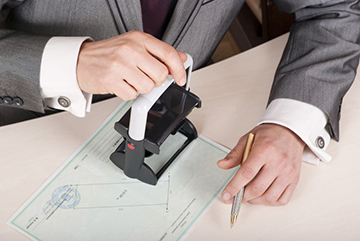
When simultaneously registering land for cadastral registration, a single application is submitted.
The application and documents can be submitted to the rights registration authority:
- on paper upon personal application by the applicant to any territorial office of Rosreestr or MFC, regardless of the location of the land plot;
- in the form of electronic documents signed with an enhanced qualified electronic signature and sent via the Internet to a single portal of public services.
List of required documents:

- application for state registration of rights (and cadastral registration);
- civil passports of participants in legal relations;
- notarized power of attorney for the representative to whom the copyright holder has entrusted the registration;
- documents serving as the basis for state registration of rights;
- boundary plan of the land plot;
- a document confirming payment of the state duty;
- other documents provided by law.
Depending on the specifics of a particular situation, the list of documents may vary.
The basic information required for registration must be contained in the contract for a civil transaction and the boundary plan of the site.
To prepare a boundary plan, you must select a cadastral engineer and submit to him the necessary documents for the land plot. During the cadastral work, characteristic points of the boundaries of the site will be determined, which must be agreed upon with the owners of adjacent land plots. The approval certificate must be attached to the boundary plan.
When making civil transactions with land, the parties must agree on all the conditions. The contract must contain the following information:
- date and place of drawing up the contract;
- necessary information about the parties to the agreement;
- a detailed description of the subject of the agreement (cadastral number of the plot, area, category and type of permitted use, etc.);
- grounds for concluding a transaction;
- the price of the contract and the procedure for settlement between the participants (in the case of a paid transaction);
- the procedure for transferring rights to land;
- the presence of restrictions and encumbrances that remain during the transfer of ownership.
All terms of the contract must comply with legal requirements. This will be verified during the registration process.
According to the terms of Federal Law No. 218, the duration of the registration procedure is established as follows:
- seven working days - when submitting documents to the Rosreestr branch;
- nine working days - in case of submitting documents to the multifunctional center;
- three and five working days, respectively, when notarized documents on the transaction are submitted for registration.
After receiving the application, the registrar will give the applicant a receipt indicating the date of receipt of the final documents.
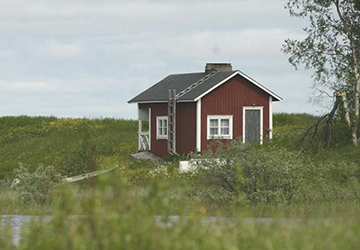
The process of registering rights to a land plot is divided into the following stages:
- acceptance of documents from the applicant;
- checking the completeness of the documents submitted by the applicant, their compliance with the established requirements for design and content;
- conducting a legal examination of documents (checking the validity of the documents submitted by the applicant, the presence of relevant rights of the person who prepared the document and the presence of previously registered (previously declared) rights to the land plot subject to registration;
- identification of grounds for refusal or suspension of state registration of rights;
- in the absence of any grounds for refusal or suspension of state registration of rights to a land plot - entering the relevant information about it into the Unified State Register of Real Estate. It contains information about existing terminated rights to objects of copyright holders. Identification of a land plot in the Unified State Register of Real Estate is carried out by the cadastral number, which is assigned to it by the cadastral registration authority;
- preparation and issuance of documents confirming the state registration of rights to a land plot, by making inscriptions on the state registration of rights on the title documents submitted by the applicant.
Cases of refusal of state registration
Refusal to register rights to a plot of land may occur on the following grounds:
- the right is not subject to state registration;
- the act of a government agency or local government body is declared invalid;
- in the process of legal examination of the submitted documents, contradictions were identified between already registered rights and declared rights to the land plot;
- the title document on the land plot indicates that the applicant has no rights to it;
- documents submitted for state registration of rights do not comply in form or content with the established requirements of the law;
- the right holder did not submit an application, as well as other necessary documents for registration of a previously arisen right to a land plot;
- An improper person applied for registration of rights.
Registration officially secures ownership of land in the state database of the Unified State Register of Real Estate.
To confirm this fact, the owner of the land plot can receive an extract from the Unified State Register of Real Estate from the Rosreestr or MFC office, as well as a certified agreement with a registration mark.
The extract from the Unified State Register includes the full contents of the cadastral passport for the land plot, including its graphic diagram indicating the area and boundaries.
After registration, the owner receives the legal opportunity to protect his right from encroachment by third parties and dispose of the land (subject to the rules of the category of land and the type of permitted use of the plots).
Dear readers, the information in the article may be out of date, take advantage of a free consultation by calling: Moscow +7 (499) 288-73-46 , St. Petersburg +7 (812) 317-70-86 or ask a lawyer a question using the feedback form, located below.
Share:
No comments yet
Registration of transfer of ownership of a land plot - About the garden and house
( 10 ratings, average: 5.00 out of 5) Loading…
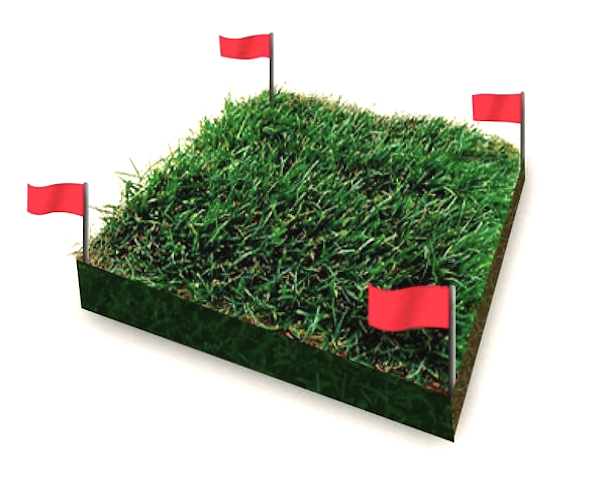 According to the Constitution of the Russian Federation, every citizen has the right to own a plot of land or other real estate, and dispose of it at his own discretion. This is also enshrined in Art. 209 of the Civil Code of the Russian Federation, which states that the owner can use and dispose of the land at his own discretion. The law also provides for registration of the transfer of ownership of a land plot . It is important to remember that the alienation of a capital construction project is possible together with the land plot, with some exceptions.
According to the Constitution of the Russian Federation, every citizen has the right to own a plot of land or other real estate, and dispose of it at his own discretion. This is also enshrined in Art. 209 of the Civil Code of the Russian Federation, which states that the owner can use and dispose of the land at his own discretion. The law also provides for registration of the transfer of ownership of a land plot . It is important to remember that the alienation of a capital construction project is possible together with the land plot, with some exceptions.
Transfer of property under a purchase and sale agreement
Each owner of a land plot has the right to sell it, while ownership of the plot goes to another person, so most often the issue of transfer of ownership arises after the purchase of the land plot.
It should be noted that the object of purchase and sale in this case can only be a plot that has been previously registered with the cadastral register and, accordingly, has an individual cadastral number.
In the case of the sale of a plot, a legal change of owner occurs, and the seller does not have the right to change the intended purpose of the land and the conditions of its use. If the alienation took place as a result of a purchase, the following documents must be submitted:
- application of the established form;
- a passport or other document, including a notarized power of attorney, if a third party is involved in the process;
- documents confirming the right of ownership of the object;
- cadastral passport for the land plot and certificate of the seller's property rights;
- purchase and sale agreement with an attached certificate of acceptance and transfer of land plot (filled out in triplicate);
- permission from the spouse or a certificate stating that the participant in the transaction is not legally married;
- receipt of payment of state duty.
A special case when the object of purchase is a share in the right of common ownership.
This situation arises when a residential building stands on a plot that is jointly owned, and this can be either common shared ownership or joint ownership (if the shares of each owner are not established). In the second case, the seller cannot dispose of his part of the common property without allocating a share.
Do not forget that when alienating a share from the common property, the other owners have the primary right to purchase it at the price set by the seller or on equal terms.
If you decide to sell your part of the property, you must notify all owners in writing. In the notification, in particular, it is necessary to indicate the amount of the transaction and the special conditions for its completion. If no one shows a desire to buy your share and the owners do not refuse, the sale of the share to a third party becomes real, otherwise the matter may go to court.
How is the transition carried out when inheriting a property?
The transfer of ownership quite often occurs if the object is transferred to a new owner by right of inheritance. In this case, the procedure for inheriting a land plot and a capital construction project occurs on a general basis.
It is worth noting that problems will not arise if the testator at one time correctly registered the property in his own possession. There will be no difficulties if there are no other heirs or if the existing heirs do not claim the property. Any friction that arises is also resolved in court.
Having received a certificate of inheritance from a notary's office, the new owner must collect the following documents:
- the certificate itself confirming the right of inheritance of the land plot;
- a document confirming the testator's IP (certificate);
- application of the established form;
- a civil passport or other documents of the heir, and if third parties are involved in the process, you will also need a power of attorney certified by a notary;
- cadastral documents;
- receipt of payment of state duty.
Thus, having collected all the necessary documents, you can begin the re-registration procedure. All that remains is to figure out how and where to register the rights to the land plot. This is especially important if you have not entrusted this issue to professional lawyers who know exactly where to go, how much it costs, and within what time frame the documents are re-issued.
Do you need expert advice on this issue? Describe your problem and our lawyers will contact you as soon as possible.
How to formalize the transfer of ownership by law
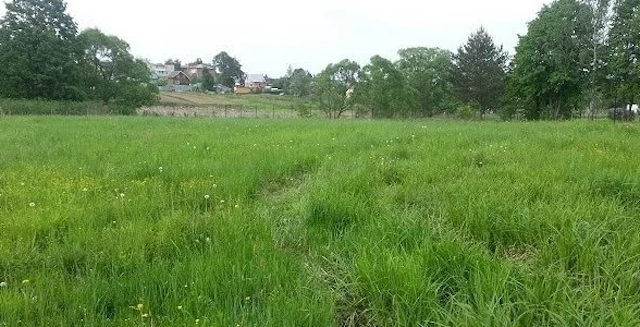
Important! The only exceptions may be areas that are located on an area whose use is limited. Alienation of the object simultaneously with the land occurs in this case if it is permitted by law.
In some cases, it is also possible that the house may be alienated without the mandatory transfer of ownership of the plot.
In particular, this does not apply to land plots that are located under apartment buildings and are the property of shareholders. In this case, it is not possible to isolate part of the structure in nature.
Also, land under a building that does not belong to a person by right of ownership (easement or limited use right) cannot be transferred into ownership.
The procedure, cost and timing
State registration of rights to real estate takes place in Rosreestr, where the owner must submit a package of documents collected in advance and pay a state fee. The specialist issues a receipt for receipt of documents, then on the appointed day you need to visit the Rosreestr office to receive a certificate.
You can also complete state registration of rights on the government services website, using the services of the multifunctional center. This can be done by both individuals and legal entities.
You can submit documents and receive a completed certificate in person, through a representative with a notarized power of attorney, using postal services, or through an MFC specialist.
The application with the attached package of documents necessary for registration of ownership rights is registered on the day of its transfer in person, or immediately after delivery by mail. If delivery occurs less than 30 minutes before the end of the working day, registration of documents occurs no later than 12 o'clock on the next working day.
At the same time, the state duty for individuals is 2 thousand rubles for each object, with the exception of agricultural land and plots intended for subsidiary farming. You can obtain legal rights to them for 350 rubles. When registering rights to a land plot for legal entities, the cost of the service is 22 thousand rubles.
Despite the fact that most of the land plots are owned by someone, there are still lands that are not registered in the cadastral register. If you decide to purchase such “ownerless” land, you need to be prepared for possible difficulties, large losses of time and money.
To save yourself from unnecessary problems and red tape, you need to try to find the rightful owner, and then simply re-register ownership. It will be easier to reach an agreement with the owners than with the state. It is better to start your search by contacting local authorities.
If the owner of the land is found and an agreement is reached with him, the transfer of the land plot occurs according to the standard procedure.
Otherwise, you need to contact the municipal administration with a statement of desire to purchase an empty plot and become its legal owner.
To avoid unnecessary questions from the official, it is better to attach copies of requests to find the owner.
The municipal body will register the plot of land for cadastral registration, and this is done for a year to enable the legal owners to declare their rights.
After the site becomes the legal property of the municipality, it can be taken out for long-term lease.
After this, you need to collect a package of documents, which includes a general plan, a cadastral passport, a geodetic plan, an act of temporary possession and an application for the transfer of ownership of the land plot.
After 3 months from the date of filing the application, you can purchase the land from the administration at the average market price, with the execution of a purchase and sale agreement. Next comes the standard registration procedure with Rosreestr.
Read also: How to register a land plot with cadastral registration: step-by-step instructions 2018
© 2018, About the garden and home. All rights reserved.
( 10 ratings, average: 5.00 out of 5) Loading…
Registration of ownership of land
If information about real estate is recorded in the state registry database, transactions involving this property are available. The owner has the right to dispose of it - bequeath, donate, exchange.
What is state registration of ownership of a land plot?
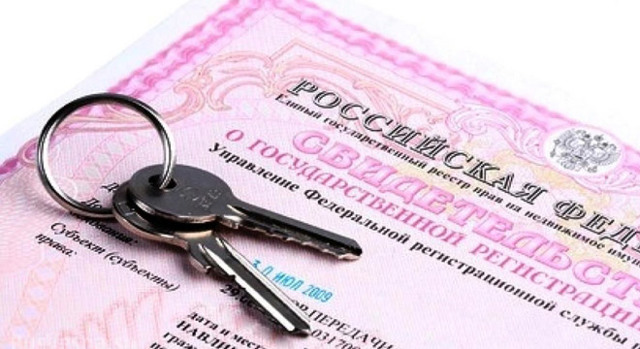
Issues of registration of property rights are regulated by Federal Law No. 218 of July 13, 2015. It contains provisions on maintaining a unified register of real estate, cadastral registration, a mechanism for contacting the registration chamber and collecting documents. Articles 551 and 260 of the Civil Code of the Russian Federation stipulate the obligation of citizens to provide information about objects. Responsibility for failure to comply with laws is provided.
Registration of ownership of a land plot refers to the procedure for entering data about an object into the general register. It contains information about the person who owns the property, its cadastral characteristics and location plan.
Which body registers land ownership?
When registering the transfer of ownership of a land plot, the owner applies to the registration chamber. Information about the new owner of the property is entered into the all-Russian database.
Land registration procedure
Cases of land registration in the register:
- there is a basis for re-registering property rights (acquisition, sale, donation, will, lease, inheritance);
- land surveying is carried out (determining the boundaries of the site);
- the owner applies to the registration chamber to enter information into Rosreestr.
IMPORTANT ! Land surveying is carried out by employees of a geodetic company. The territory is surveyed and a topographic plan is created.
Federal Law No. 447 of December 22, 2014 obliges owners to draw up a boundary plan; without this procedure, transactions with property are not carried out. The owner has the right to conduct activities on the territory in accordance with the permitted use. It is contained in the cadastral passport for real estate.
List of documents
List of documents for registering a land plot:
- a copy of the applicant’s passport (full name, date of birth, registration address);
- act of acceptance and transfer of property;
- boundary plan;
- cadastral passport;
- agreement on the free transfer of land to the owner (transferred before 2001);
- a document confirming the right of ownership (sale and purchase agreement, lease, certificate of inheritance, gift).
- an application requesting the transfer of ownership of the property.
ATTENTION! In case of refusal, the applicant has the right to re-apply to the registration chamber or appeal the decision through the court.
Registration period
The deadlines for entering information into the register are determined by Federal Law of July 13, 2015, No. 218, Art. 16:
- documents and application are reviewed within 7 working days from the date of receipt;
- In case of submitting information to the MFC, the time for resolving the issue is 9 working days.
The consideration time is reduced to 5 working days if a court decision is provided with an obligation to register property rights.
Registration fee
When registering land for personal use, a mandatory condition is the payment of a state fee.
State fee amounts:
- the plot is intended for individual housing construction - 2 thousand rubles (individuals), 22 thousand rubles. (legal entities);
- the purpose of using the land is subsidiary farming, vegetable gardening, gardening, construction of a garage (350 rubles).
If there are several owners, each of them pays the fee in full.
Can they refuse to register property rights?
Article 27 of Federal Law No. 228 stipulates that the authority has the right to refuse registration if there are circumstances that prevent the registration of land ownership.
They are regulated in Article 26 of Federal Law No. 228:
- there are no grounds for owning and using real estate;
- the applicant is an improper person (the purchase agreement was drawn up in the name of one person, and another person submitted the application);
- contradictions between established and declared rights to an object;
- land is not subject to registration (state property);
- documents do not comply with legal requirements;
- Rosreestr has not received information on interdepartmental interaction;
- information on the object was previously provided for another transaction;
- recognition through court of the invalidity or insignificance of a transaction;
- there is no consent to formalize the right of ownership.
If the shortcomings are eliminated, the applicant has the right to apply again to obtain a positive decision.
Transfer of rights to a land plot
Free consultation with a lawyer on land disputes Prices for lawyer services on land disputes
Author of the article: Petr Romanovsky, lawyer Author rating: 5 Articles written: 540
Any transaction related to the alienation, exchange or donation of a plot of land is accompanied by the transfer of the right to it to a new entity. From the moment the right to a land plot is transferred, the new right holder acquires the legal ability to own, use and dispose of the acquired property.
The concept of transfer of rights to a land plot. Legal facts associated with the transfer of rights
The land plot is included in the list of real estate objects defined in Article 130 of the Civil Code of the Russian Federation. Therefore, all the rules provided for by law for registering the transfer of rights to real estate apply to a plot of land.
Article 131 of the Civil Code of the Russian Federation regulates that real rights to immovable things (including a land plot) are subject to state registration in the unified state register of rights to real estate and transactions with it (USRP). From January 1, 2017, instead of the Unified State Register in the Russian Federation, the Unified State Register of Real Estate (USRRN) will operate, which will contain information on the transfer of rights to land.
Free consultation with a lawyer on land disputes Prices for lawyer services on land disputes
3 ways to get a free legal consultation 01
Online chat bottom right, lawyer consultant is always in touch
02
Free hotline 8 800 511 38 27 (Moscow and regions of the Russian Federation)
03
Help from a lawyer on the free legal advice page
Property rights to a plot of land subject to state registration include:
- Ownership;
- The right of lifelong inheritable ownership;
- Right of permanent use;
- Mortgage;
- Easements.
The legal fact with which the legislator associates the transfer of land rights is the date of state registration and entry of information into the Unified State Register. It is from this moment that the transfer of rights to a plot of land comes into force.
Confirmation of the transfer of ownership is contained in the title documents for the land plot, and from July 15, 2016 - in the Extract from the unified state register of rights.
The most common case in land legal relations is the transfer of ownership of a plot, which is carried out by concluding a paid or gratuitous alienation transaction (purchase and sale, exchange, donation). It is important that since 2013, only the transfer of ownership is subject to state registration, whereas before this time registration actions were also carried out in relation to the contract.
Transfer of rights to a plot when transferring ownership of a building or structure
Any capital construction project (building, structure, property complex) cannot exist in isolation from the ground. One of the main uses of land is construction.
The transfer of rights to a plot of land upon alienation of a real estate property located on it has a number of features provided for by law.
The general rule established for cases of disposal of real estate states that simultaneously with the transfer of ownership of a capital construction project, the ownership of a plot of land also passes to the buyer.
There is also the opposite rule - the alienation of land is not allowed without the simultaneous sale of the building located on it, if they belong to the same copyright holder.
These provisions are provided for in Articles 273, 552 of the Civil Code, as well as Article 35 of the Land Code of the Russian Federation.
In practice, when making a transaction for the alienation of a building, the contract provides for a condition on the simultaneous sale (exchange, donation) of the land plot. If a plot of land is subject to alienation, the agreement contains a condition on the sale of the building located on it.
The total value of the property transferred under a paid alienation agreement shall separately indicate the price of the land plot and the capital construction project. This condition must be met to resolve a potential dispute between the parties to the contract.
The execution of the specified alienation agreement for a plot of land and buildings on it requires the indication of all identifying characteristics separately for each object. For a land plot, such information is:
- Address (location);
- Total area of the site;
- Cadastral number of the plot;
- Category of land and type of permitted use;
- Information from the Unified State Register on registration of the right to be transferred as part of the current transaction.
For a capital construction project, this information includes:
- Address of the object;
- The total area of the building, as well as, at the discretion of the parties, living area;
- Cadastral (conditional) number of the object;
- Data from the Unified State Register of Rights on the registration of the right to be transferred as part of the current transaction.
A prerequisite for subsequent registration of the transfer of rights is the determination of the moment of actual transfer of property to the new copyright holder, which is recorded in a separate acceptance certificate or in the agreement itself.
In judicial practice, there are cases when, during the alienation of a capital construction project, the contract does not contain a condition on the simultaneous transfer of rights to a plot of land.
In this situation, the new right holder has the right to demand from the previous owner (possessor) to formalize the transfer of rights to the land.
In case of refusal to register the transfer of rights to a plot, the new copyright holder has the right to file a claim in court to protect his interests.
The procedure for state registration of the transfer of rights to a land plot
To transfer rights and obligations to a plot of land to a new legal holder, the transfer of ownership must be registered in the prescribed manner.
Federal Law No. 122-FZ of July 21, 1997 “On state registration of rights to real estate and transactions with it” regulates that registration of a transfer of rights means the commission by an authorized state body of a certain legal act (action) entailing legal consequences. Such a legal act is the entry of information about the transfer of rights into the Unified State Register. It follows from this that ownership of any real estate, including a plot of land, arises from the moment of registration of the transfer of the right to it.
To register the transfer of rights to a plot, applicants submit documents to the territorial body of Rosreestr at the location of the real estate property. Registration actions regarding the transfer of rights are carried out by the specified bodies of Rosreestr.
The deadline for applying for registration of the transfer of rights after the conclusion of a land alienation agreement is not defined by law, but it should be remembered that without completing registration actions and entering information into the Unified State Register, the legal consequences of the transfer of rights do not occur.
The procedure for registering the transfer of rights to a plot is regulated by Federal Law 122-FZ and consists of the following stages:
- — receiving from applicants the necessary documents to complete registration actions;
- — legal examination of a set of documents, checking them for compliance with the law;
- — entering information about the transfer of rights into the Unified State Register in the form of appropriate entries;
- — issuance to applicants of documents certifying the fact of registration (Extracts from the Unified State Register).
Registration of the transfer of rights to a plot of land is considered completed from the moment of entering information (records) into the Unified Register of Rights and issuing documents to applicants.
Transfer of rights to land plots in 2023, registration, state duty, transfer of ownership of land | Land expert
1898
The content of the article:
Land ownership
The transfer of ownership of a land plot at the time of taking possession of buildings located on the specified land is permitted and regulated by Article 35 of the Land Code of the Russian Federation and Article 273 of the Civil Code of the Russian Federation. The new owner receives the right to dispose of the land in full. If several people own a building, then they receive the land on which the property is located as shared ownership.
The moment of transfer of rights to a land plot is the registration of the document on the basis of which the right was transferred. Such a document can be a deed of gift, a purchase and sale agreement, an exchange, or a court decision.
Registration of the transfer of ownership of a land plot is mandatory during transactions with real estate and land (Article 551 of the Civil Code of the Russian Federation). It is carried out in Rosreestr, and the corresponding entry is made in the Unified State Register of Rights to Real Estate and Transactions with It.
Pre-emptive right to purchase or lease
The owner of a building located on land that does not belong to him has a preemptive right to purchase a plot of land (clause 3, article 35 of the Land Code of the Russian Federation).
If the building is in shared ownership , then in order to sell part of such a building, the seller must notify the other co-owners in writing.
If they renounce their preemptive right or do not purchase the part of the premises being sold within a month after receiving written notice, the seller has the right to sell his share of the real estate to a stranger.
Foreign individuals and legal entities who are the owners of a building located in Russia on land that does not belong to them can also take advantage of preferential rights to purchase land territory (clause 5, art.
35 ZK RF). The purchase procedure is established and regulated by land legislation.
However, the President of the Russian Federation has the right to establish a list of structures to which the preferential rights of foreigners do not apply.
Features of building alienation
The alienation of structures and buildings located on a certain site and belonging to one citizen is carried out together with the land. Alienation of land territories belonging to one person without buildings located on them is prohibited. Issues related to the process of alienation of buildings are regulated by the Russian Land Code ( Article 35 , paragraph 4).
The alienation of buildings located on a land territory limited in circulation and belonging to one citizen is carried out together with the land only if this is permitted by federal legislation.
However, there are a number of situations when the alienation of buildings can occur without a plot of land:
- buildings were built on a land plot under the terms of an easement ;
- the buildings were erected on territory that was withdrawn from circulation under Art. 27 Land Code of the Russian Federation;
- part of the buildings that cannot be identified in kind together with the part of the land territory where they are located (clause 1, clause 4, article 35 of the Land Code of the Russian Federation), for example, an apartment (premises) located in a residential or non-residential multi-story building (administrative building).
The alienation of a share in the ownership of a building is carried out together with the alienation of the corresponding share in the land plot on which the building is built.
An example of the transfer of rights to a land plot
330 m2 in 2000 .
The total area of the land plot (adjacent territory plus land under the store) owned by the municipality was 700 m2 .
The store's lease lasted until 2006, after which Ilya Stepanovich bought it from the previous owner. The purchase and sale agreement was registered with Rosreestr .
After some time, I.S. Kondratyev decided to exercise the right of pre-emption and lease , and on its basis to buy the land plot under the store along with the adjacent territory. Having contacted the city administration, the entrepreneur learned that he had to buy a plot at a price of 2,280 rubles per 1 m2 .
Mr. Kondratyev already owns the territory under the store, based on a registered purchase and sale agreement.
Therefore, an entrepreneur, purchasing a plot recorded in the cadastral register from the municipality, paid not for its entire area ( 700 m2 ), but only for the area adjacent to the store ( 700 m2 - 330 m2 = 370 m2 ). The amount of the fee paid was 2280 rubles . * 370 m2 = 843,600 rubles .
The fact of the transfer of ownership of land from the ownership of the municipality to the ownership of I.S. Kondratiev is registered in the Unified State Register . The entrepreneur was issued a certificate confirming his ownership of the land.
Conclusion
To conclude this article, there are a few key points to highlight:
- Each land transaction must undergo state registration .
- Before registering ownership of a land area, you will need to pay a state fee .
- Alienation of a building is possible only together with the land area on which the building is built (except for lands withdrawn from circulation and areas under multi-storey buildings).
- Foreigners who own buildings in Russia also have preferential rights to purchase the land on which their property is built.
List of laws
The most popular questions and answers to them regarding the transfer of rights to a land plot
Question : Is it necessary to pay a state fee in the process of registering rights that allow you to own land by inheritance? Stanislav.
Answer : Every transaction made with land or real estate is subject to state registration (Article 131 of the Civil Code of the Russian Federation).
The payer of the state duty is an individual or legal entity that has applied to Rosreestr for the provision of services to perform legally significant actions.
The fee must be paid before submitting an application to register the transfer of ownership or when it has already been submitted electronically. The fee is: legal. individuals – 22,000 rubles , and individuals – 2,000 rubles .
The following articles will be useful to you:
Call right now and resolve your issue - it's fast and free!







